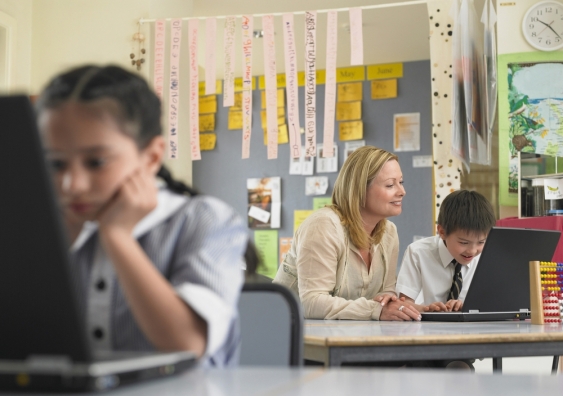Why are we neglecting the needs of gifted students?
Ahead of a global conference on gifted education, UNSW's Jae Jung says teachers are not being given the training they need to meet gifted students’ special needs.
Ahead of a global conference on gifted education, UNSW's Jae Jung says teachers are not being given the training they need to meet gifted students’ special needs.

Clare Morgan
UNSW Media & Content
(02) 9385 8920
clare.morgan@unsw.edu.au
Gifted students are the most neglected in Australia’s education system because teachers are not being given the training they need to meet these students’ special needs, according to a University of New South Wales (UNSW) expert in gifted education.
Dr Jae Jung, a senior lecturer in the School of Education and a GERRIC senior research fellow at UNSW Sydney, will discuss the state of gifted education in Australia during the 22nd Biennial World Conference of the World Council for Gifted and Talented Children (WCGTC) at UNSW from 20-23 July.
The conference, with the theme Global Perspectives in Gifted Education, will bring together hundreds of researchers, teachers, parents, students and practitioners from Australia and around the world. It is being hosted by the UNSW School of Education, a world-leader in pioneering and innovative work in gifted education.
On 22 July, Dr Jung will present an analysis of gifted education practices before discussing the implications and recommendations for future research and practice.
He says the main weakness in gifted education in Australia is that most teachers do not have training that allows them to address the needs of gifted students.
“For example, in NSW all teachers are required to complete, as part of their pre-service tertiary education, compulsory units in working with students who have English as a second language, students of Indigenous background, and students who have special needs (i.e. disabilities, learning difficulties, autism etc). In contrast, the NSW Education Standards Authority (NESA) does not require university pre-service teacher training programs to have a separate compulsory unit in gifted education,” Dr Jung says.
“This is despite the fact that the Australian Professional Standards for Teachers explicitly requires all teachers in Australia to be able to differentiate their teaching to meet the specific learning needs of students across the full range of abilities. We therefore have the unfortunate situation whereby intending teachers in Australia are not being trained to fulfil requirements outlined in the Australian Professional Standards for Teachers.”
We need to remember that our brightest students are the ones who are the most likely to make a real difference in society.
As a result, he says, most Australian teachers do not know how to identify and meet the educational needs of gifted students. “It is therefore not surprising that we are seeing such a decline in the performance of Australian students, and particularly our brightest students, in international assessments such as PISA (Program for International Student Assessment) and TIMSS (Trends in International Mathematics and Science Study),” Dr Jung says.
“We need to remember that our brightest students are the ones who are the most likely to make a real difference in society. They’re the ones who are likely to find the cure for cancer, they’re the ones who can find a solution to global poverty, and they’re the ones who are best positioned to address environmental issues like loss of biodiversity and ocean acidification. And yet, they’re the ones who are most neglected in our education system.”
The conference will span more than 200 presentations including keynote speeches, symposiums and lectures canvassing the vital research, issues and concerns that affect the field of gifted education and gifted and talented children. Topics will include dealing with chronic boredom and frustration, the basics of parenting gifted children, home schooling, ADHD, creativity, and the long-term effects of grade skipping.
The conference’s keynote speakers are:
What: 22nd Biennial World Conference of the World Council for Gifted and Talented Children
When: 20–23 July
Where: UNSW Sydney, Kensington